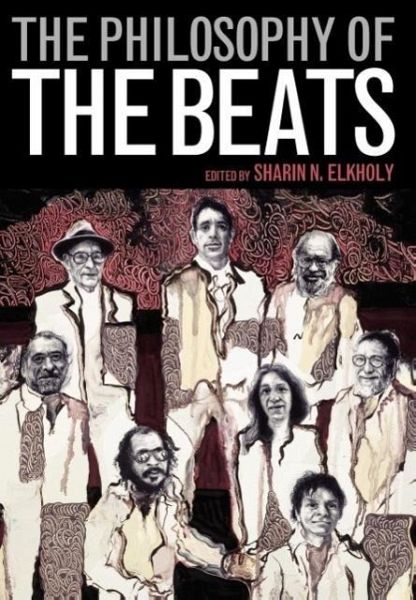
The Philosophy of the Beats
Versandkostenfrei!
Versandfertig in über 4 Wochen
35,99 €
inkl. MwSt.

PAYBACK Punkte
18 °P sammeln!
Originating from underworld slang-the domain of hustlers, drug addicts, and petty thieves-the term "Beat" was short for "beaten down" or downtrodden. To writer Jack Kerouac it symbolized being at the bottom of society's hierarchy and looking up. Kerouac introduced the phrase "Beat Generation" in 1948 to characterize the underground, anti-conformist youth gathering in New York City at that time. The Beat Generation consisted of writers, artists, and activists, and they became a uniquely American cultural phenomenon with a worldwide influence that introduced new ways of looking at visual art, mu...
Originating from underworld slang-the domain of hustlers, drug addicts, and petty thieves-the term "Beat" was short for "beaten down" or downtrodden. To writer Jack Kerouac it symbolized being at the bottom of society's hierarchy and looking up. Kerouac introduced the phrase "Beat Generation" in 1948 to characterize the underground, anti-conformist youth gathering in New York City at that time. The Beat Generation consisted of writers, artists, and activists, and they became a uniquely American cultural phenomenon with a worldwide influence that introduced new ways of looking at visual art, music, literature, politics, race and gender issues, religion, and philosophy. The original Beat Generation writers include the familiar names of Jack Kerouac, Allen Ginsberg, William S. Burroughs, and Gregory Corso. Other figures who associated with the movement are Herbert Huncke, Neal Cassady, Bob Kaufman, Gary Snyder, Ken Kesey, Philip Whalen, Diane DiPrima, and John Clellon Holmes, to name a few. The Beats were deeply invested in a philosophy of life that they drew upon to create literary works and bohemian lifestyles. Theirs was a constant search for meaning, a coping with anxiety, alienation, revolutionary protest, and the struggle to find one's place in the world. In The Beats and Philosophy editor Sharin N. Elkholy has gathered leading scholars in Beat studies and philosophy to explore the enduring literary, cultural, and philosophical contributions of the Beats in a variety of contexts. Including essays on the drug experience in the works of Ginsberg and Kerouac, feminism and the Beat heroine in Diane DiPrima's writings, Gary Snyder's environmental ethics, and the issue of self in Bob Kaufman's poetry, this collection will explore the philosophical underpinnings of the Beat generation and will help explain why it remains one of the most defining movements of modern American culture. The Beats and Philosophy will appeal to Beat scholars, philosophers, writers, artists, and fans alike. Sharin N. Elkholy is assistant professor of philosophy at the University of Houston-Downtown. She is the author of Heidegger and a Metaphysics of Feeling: Angst and the Finitude of Being (Continuum) and her most recent article "Friendship Across Differences: Heidegger and Richard Wright's Native Son" appears in Janus Head (Summer/Fall 2007).












